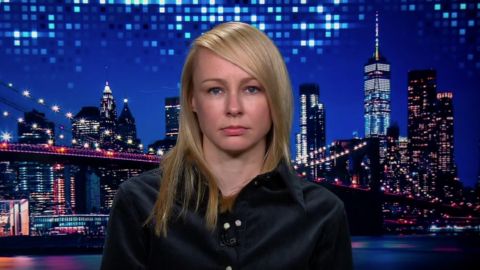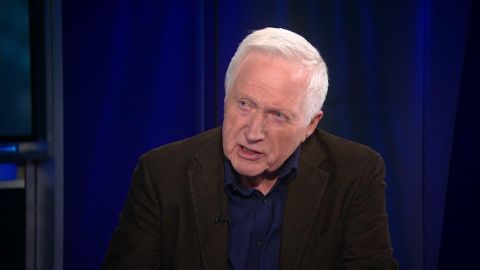Read Transcript EXPAND
CHRISTIANE:
So for decades, you are the face of the BBC, the face of Britain, not just in your special programs, but especially on election and referendum nights. True. Here we are nearly four years after that referendum and we are out of the EU. How do you feel about that?
DAVID DIMBLEBY:
You see me sort of sinking here and it’s not despair. It’s trying to work out how we feel as a country because I’ve never known an issue that so divided the country and yet, which is so misunderstood on both sides. I don’t think anybody really knows yet why people voted the way they did. So, uh, this is, I see this as a kind of another stage, I think in a hundred years from now, uh, your successor and mine may be sitting here saying, sir, how does it feel to be rejoining? So let me play that moment. It was actually the morning after because the final result didn’t really come through until the Dawn Dawn hours of the next day. And this is what you told the British people [inaudible] 20 minutes to five, we can now say the decision taken in 1975 by this country to join the common market has been reversed by this referendum to leave the EU. The British people have spoken. And the answer is, we’re out. And that was 2016 and we’re now in 2020 and we’re only just leaving. Yeah, I mean, that’s the scale of this decision, the difficulty of achieving it all these years. I thought when I said that, but it was true. We’re out. Actually four years later, we’re in just leaving. We still won’t be full. I mean, the deal won’t be done until another 12 months. They quoted Churchill in the war saying, uh, this is not the end. This is not even the beginning of the end, but it may be the end of the beginning. I mean, we have years to go negotiating with the United States, negotiating with the rest of the world, negotiating with Europe, uh, before we know where we’ll be on trade terms. But the psychological thing has happened, the site, whatever that was, whatever it was, people wanted, the people who voted to leave Europe, third of us, they will be celebrating. I think the people who voted remain accepted. Now they, you know, then there’s no great campaign to reverse it. Now they’ve accepted it and the British are very sort of pragmatic people. In the end. This is, this was divisive, but in a way that was quite unlike our normal way of doing politics. But then not the normal way of doing politics. Like yours is all over the shop. You know, in the United States and here in India, every, all, all politics seems to be this lovely idea of democracy. And it would be, it would work because everybody would be part of the thing. You suddenly realize actually democracy means that the majority rules the minority if we’re not careful.
About This Episode EXPAND
Legendary journalist David Dimbleby sits down with Christiane to discuss what the next chapter will look like for the U.K. and the EU following Brexit. Kitty Green, writer and director of “The Assistant,” explains how toxic workplace culture enables predatory behavior. Oscar-nominated director of “The Edge of Democracy” Petra Costa discusses dangers to democracy in Brazil.
LEARN MORE


